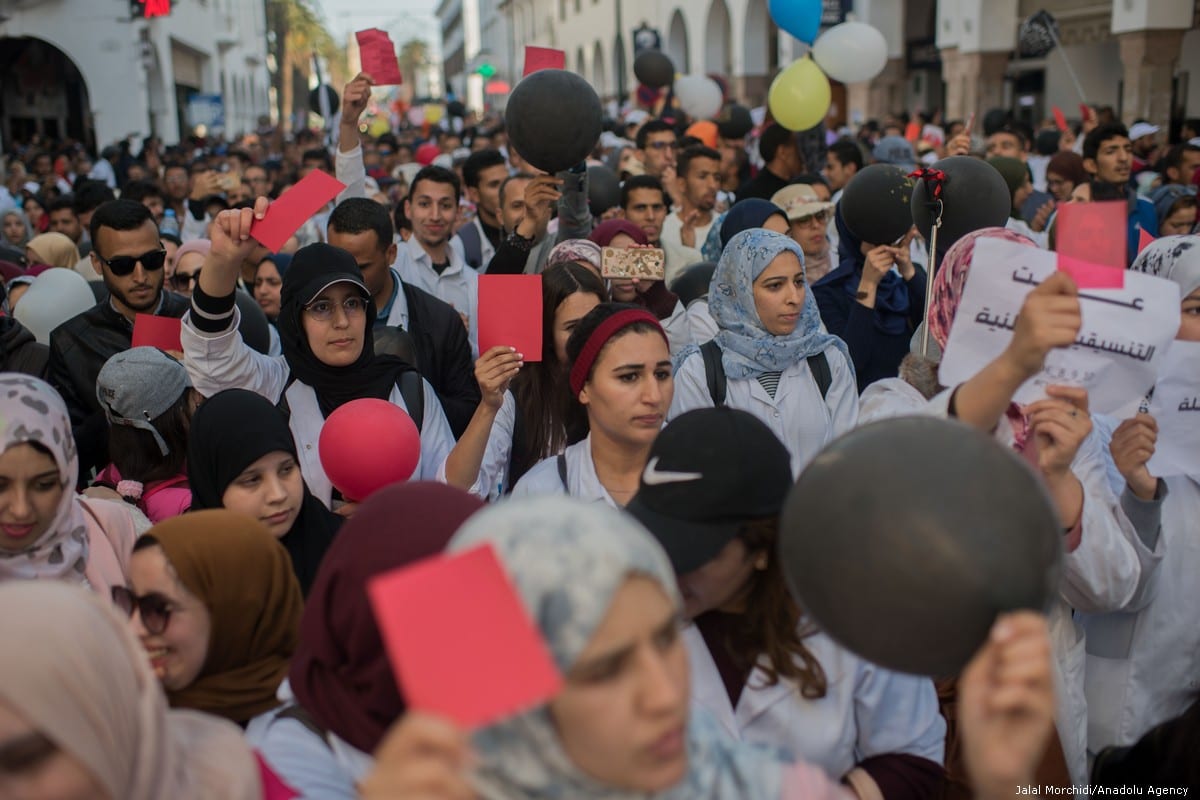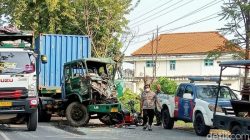Career-oriented programs with clear job prospects are gaining ground in Morocco’s universities, but they’ve yet to reverse high dropout and unemployment rates for students who make poorly informed decisions at the outset of their academic path.
In fields like AI, agro-food engineering, and information systems, Morocco has introduced dozens of new programs in recent years, many structured to welcome students beyond the top academic tier.
One such initiative is the
ESRI 2030 pact
, launched in 2022 to overhaul Morocco’s higher education system by updating academic programs and introducing new career-oriented fields to better align with market demands and provide over 1.3 million students with more diversified, adaptable training.
Two years later, the Hassan II Institute of Agronomy and Veterinary Medicine (IAV) in Rabat introduced a specialized engineering program in seawater desalination, spearheaded by the Ministry of Agriculture to bolster water security and sustainable resource management.
In Taroudant, the National School of Artificial Intelligence and Data Sciences (ENSIASD) opened its doors in 2024 to train engineers in AI and data sciences, directly addressing Morocco’s surging demand for digital and technological expertise.
“The first time I heard about ENSIASD was through guidance pages on social media,” said Oussama Ajebli, a student who joined the school in its inaugural class; a cohort of 60 students, divided between IT security and data science was largely assembled without any official orientation.
“The goal is to have 1,000 students over the next few years,” said Ajebli, who as president of ENSIASD’s student office now promotes the school at orientation forums nationwide, from Tan-Tan and Agadir to Inezgane and Tiznit.
Each year, the Ministry of Education organizes regional “Orientation days” typically from October to April, bringing together 3rd year students and their families with 30–50 higher-education and vocational institutions.
About 1, 1 127 orientation counselors visit high schools between February and April for initial choice guidance, then return in June–July to assist with post-bac applications through classroom presentations.
Yet many schools lack dedicated, year-round guidance spaces, so students often supplement official channels with informed post-bac decisions, or worst case scenario.
Hiba Alahyane, now a journalism student, says she might have taken a more direct path if proper academic guidance had been available in 2020. With a high school average of 13, she enrolled in a science program before pivoting to media studies, an outcome she describes as avoidable.
“I would’ve worked harder to reach the grade I needed for journalism from the start,” she says, “instead of wasting time,” a detour that experts see as a structural failure.
Abdelaziz Snihji, an expert in educational, career, and university guidance, said the time allocated for orientation within the school schedule “is also too limited and not treated as a core component of the student’s academic path.”
The consequences are visible at scale: Morocco’s higher education system is under pressure, with nearly 50% of university students dropping out before earning a degree, according to the Ministry of Higher Education.
Even among those who graduate, unemployment remains high, 25.9% as of 2023, the highest rate in nearly two decades. The broader labor market offers little relief, with the national unemployment rate reaching 13.3% in early 2025.
“Many lack a clear personal project, something that should be developed gradually from primary and middle school through self-awareness, career exploration, and testing of interests. This is compounded by limited or delayed access to information,” said Snihji.
Students turn to the internet for guidance, with sites like Orientation Maroc and TawjihNet as primary resources, while videos from educational content creators gain traction as students try to bridge the existing guidance gap.
Anouar Errahmani, an educational content creator on TikTok and Instagram, told English that based on his experience, “many students lack a clear understanding of the opportunities available to them, whether in specialized institutes, elite schools, or university programs.”
“We truly hope for future collaboration,” said Fatima Ezzahra Tghos, known as “Miss Biomed” on TikTok, adding that official support would help amplify efforts to guide students more effectively.
While online platforms have stepped in to fill the void, many believe the responsibility for academic guidance still begins in the classroom.
High school teachers, often the closest mentors to students during this critical period, offer a unique perspective on the system’s limitations and its missed opportunities. Laarousi Touile, a high school English teacher in Boujdour, says current efforts are “limited and often insufficient”.
He believes that planning orientation activities in the final weeks before the baccalaureate exam is ineffective. “When students are already stressed with exams, it’s simply too late to make meaningful decisions,” he said.
The post
‘I would’ve chosen differently’: graduating students miss out on Morocco’s education reforms
appeared first on
English – Morocco News
.







